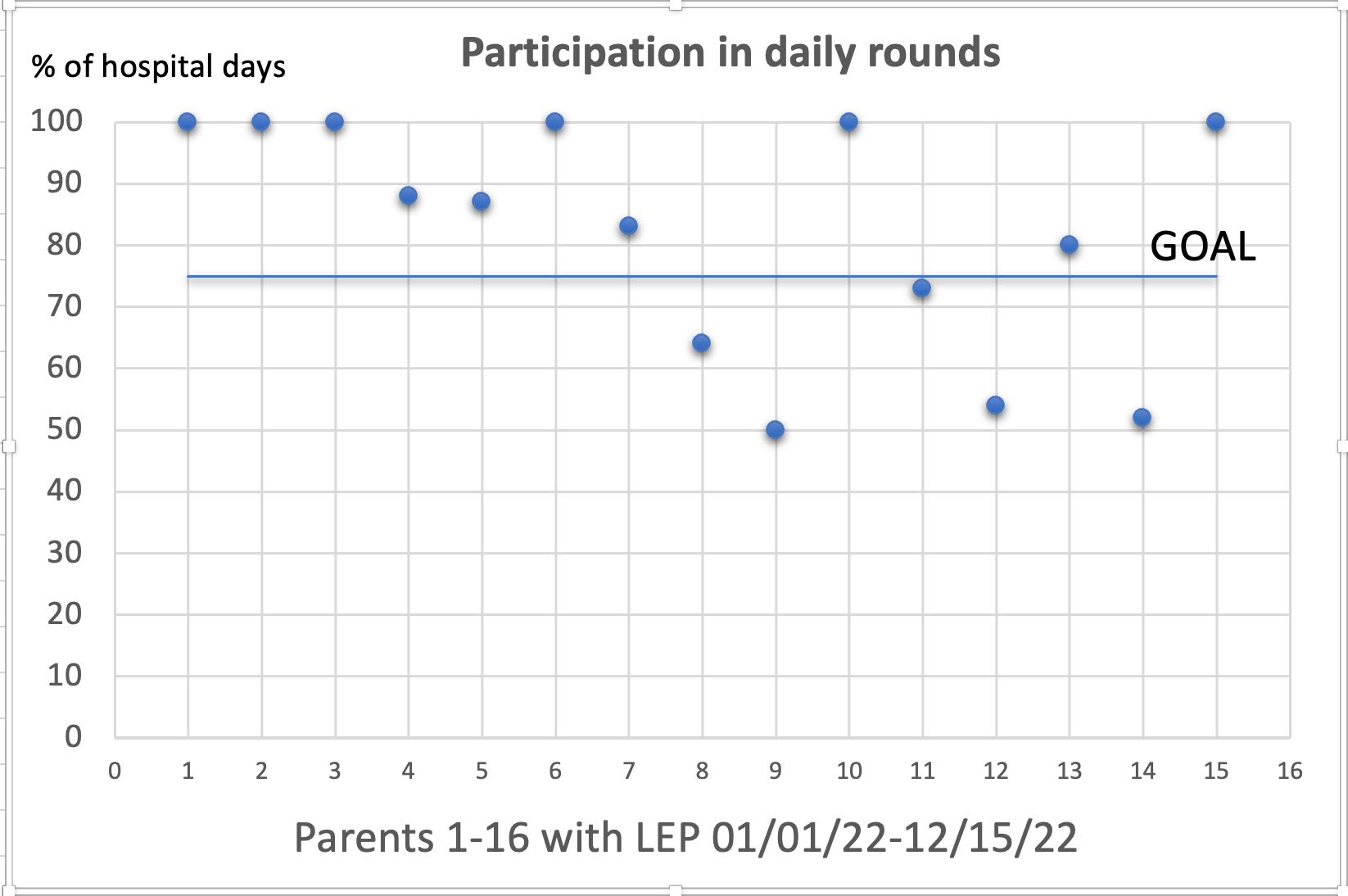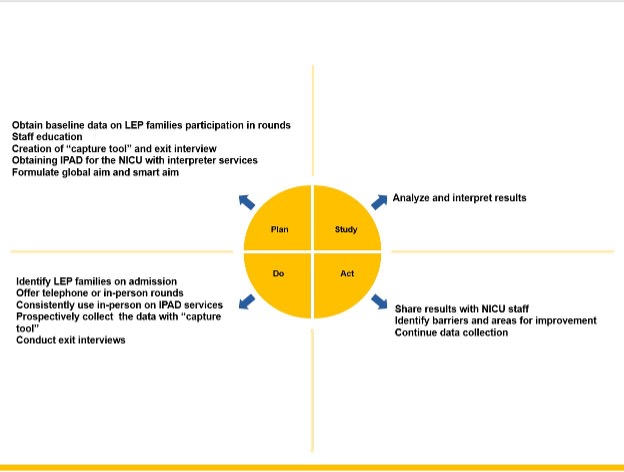Health Equity/Social Determinants of Health
Health Equity/Social Determinants of Health 2
524 - A quality improvement approach to reduce disparities in communication in the NICU for families with limited English proficiency (LEP)
Publication Number: 524.117
.jpg)
Zuzanna Kubicka, MD
BCH neonatal network director
Boston Children's Hospital
Boston Children's Hospital
Marshfield, Massachusetts, United States
Presenting Author(s)
Background:
NICU families with LEP are more likely to receive lower-quality care than English proficient families. When unaddressed, LEP is a barrier to effective communication and may contribute to racial or ethnic disparities in outcomes of care.
Prior to implementation of this Quality Improvement (QI) project none of the parents with LEP in our NICU participated in rounds due to time constraints and lack of a workable translation method. Our baseline data indicated that we encounter 12-18 families per year with LEP. In our recent study, 93% of English proficient parents reported “always” participating in daily multidisciplinary rounds via phone/in person in our NICU and the experience is described by parents as overwhelmingly positive.
Objective:
Global aim: reduce disparities in NICU care by primary language. Smart aim: For each family with limited English proficiency (LEP) increase participation in daily multidisciplinary rounds from baseline of 0 days to 75% of hospital days between January 1st and -December 15, 2022. Secondary aim: obtain exit interviews with LEP parents exploring areas for improvement.
Design/Methods:
This project is part of a state-wide initiative to improve families’ engagement across the MA NICUs. We aim to address the, “improved communication with families” driver. Prospective QI with PDSA methodology was utilized. Parents were given the option to participate over the phone or in person. Data was captured prospectively using a, “daily rounds participation capture card”. A structured exit interview was created to capture parental views on opportunities for improvement.
Results:
Between January 1st and December 15 2022, 15 LEP families with 19 infants were admitted. Brazilian Portuguese was the predominant language. 14 out of 15 families requested multidisciplinary bedside rounds utilizing in person or IPAD interpreter. All parents with LEP participated in rounds. Parental participation ranged from 52 to 100% of hospital days, with 82% of days on average. We did not reach the goal of 75% hospital days with 5 families. 5 exit interviews were conducted with Brazilian-Portuguese speaking parents. Repetitive themes were the superior quality of an in–person interpreter over IPAD services, the poor quality of Google Translate and the need for specific Brazilian-Portuguese rather than Portuguese interpreters
Conclusion(s): Including families in multidisciplinary rounds is feasible, in-person interpreter services should be utilized whenever possible. Barriers other than LEP to participation in rounds might exist and warrant further exploration.


